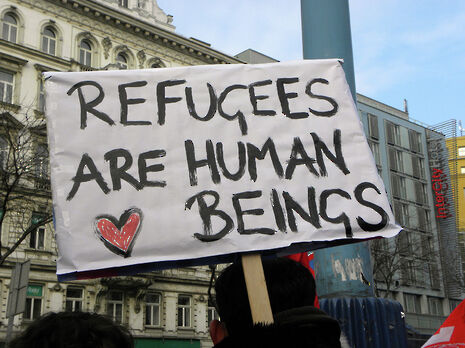Refugees resettled: the integration crisis
On her year abroad, Juliet Morland has seen that resettlement does not come with acceptance, or integration

Next to my flat is accommodation for refugees. When it was suggested that my room be rented by an immigrant after I leave, comments from my flatmates ranged from “it would be more chill to live with students” to “ask whether they can clean and what they understand by cleanliness” and, most shockingly, “we have enough refugees in the garden.” Although my flatmates all claimed to be open to meeting a refugee interested in living with them, vowing to judge them only on a personal basis, attitudes like this don’t give newcomers much of a chance. Of course, education centres, social organisations and even individuals are working hard to make refugees welcome in Germany, but their efforts can only be truly successful if newcomers are accepted by the vast majority of Germans.
When the refugee crisis pops up in the media, it’s often accompanied by pictures of people on the move. These pictures capture the scale and tragedy of the crisis but neither highlight the cause, nor its impact. Brits do not personally experience the tumult of war or poverty that drives people to look for a future elsewhere, nor do they, for the most part, personally observe refugees arrive on Mediterranean shores. Although the reasons for this are understandable, the harmful result is that for so many people, the crisis remains impersonal – a news topic limited to TV. Newcomers seek asylum in Europe and try to integrate into society, but once they get here, they are almost invisible.
“In Fulda, newly arrived immigrants live alongside the community, but rarely within it.”
The first time I viewed images of the refugee crisis was a shock. In Cambridge, I don’t have a TV and prefer to listen to the news on the radio rather than engage visually. It was only when I returned home to London, after weeks of hearing about the crisis, that I eventually saw footage on TV. I realised that hearing about something is completely different to seeing something. But seeing is a far cry from experiencing: while living in Cambridge I didn’t personally meet a single newly-arrived refugee. Perhaps this is because I live in a student-bubble, weaving in and out of lectures, the library and non-political university societies. But such a lifestyle isn’t limited to me, or even just to students. Across Britain, we live in our own communities and, for the most part, only observe the rest of the country from our television screens.
In Fulda, newly arrived immigrants live alongside the community, but rarely within it. In the school where I work, there are four classes for refugees who they have their own curriculum predominantly consisting of German language lessons. Although this makes educational sense, the side effect is that it cuts them off from the rest of the school community. Moreover, the expectations are unreasonably high, as pupils in these classes are expected to achieve the lowest-level of school leaver qualifications after just two years of study, regardless of whether they arrived in Germany already speaking a bit of German or whether they had never set foot in a school before. In theory, these students are offered a chance of social mobility and access to German society; in practice, this chance seems out of reach for many.
“Brits do not personally experience the tumult of war or poverty that drives people to look for a future elsewhere.”
The most recently arrived refugees are hardly the first wave of immigrants ever to have reached Germany. The country, including the city of Fulda, has been home to a significant number of immigrants from the former Soviet Union for the past twenty years. Here, the success of integration has largely depended on generational change. I have met older immigrants who, despite living in Germany for about as long as I am old, speak significantly worse German than me. But I have also met their grandchildren, who hardly speak a word of Russian. For this group, integration has been slow and, for many, unsuccessful, with no greater prospect of success for the next group.
Nearly two years ago, Germans made the headlines for standing at the railway station in Munich to welcome refugees. But it’s easy to forget that such beliefs don’t necessarily reflect the socio-political leanings of the majority we don’t see on TV. The debate about the pros and cons of the large numbers of refugees to Europe continues, but that is old news. Now the refugee crisis is not only a crisis of unprecedented numbers of immigrants seeking asylum, but unprecedented numbers of asylum seekers being left on the sidelines of society, rather than being integrated. Until we properly address those who seek refuge in our countries, the second stage of the refugee crisis will spread: the integration crisis
 News / Cambridge academics stand out in King’s 2026 Honours List2 January 2026
News / Cambridge academics stand out in King’s 2026 Honours List2 January 2026 Interviews / You don’t need to peak at Cambridge, says Robin Harding31 December 2025
Interviews / You don’t need to peak at Cambridge, says Robin Harding31 December 2025 Comment / What happened to men at Cambridge?31 December 2025
Comment / What happened to men at Cambridge?31 December 2025 News / Varsity’s biggest stories of 202531 December 2025
News / Varsity’s biggest stories of 202531 December 2025 Features / “It’s a momentary expression of rage”: reforming democracy from Cambridge4 January 2026
Features / “It’s a momentary expression of rage”: reforming democracy from Cambridge4 January 2026










